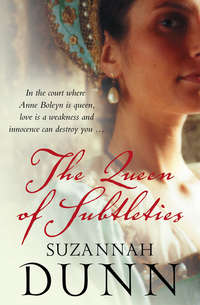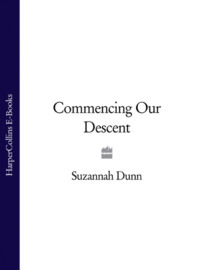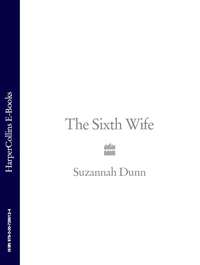
Полная версия
Tenterhooks
I look up at her as I have been told to do when she talks to me, but I keep my pen moving and, below me, blue felt-tip is turning a piece of my picture into water.
And she is already telling Dad, ‘I’ll call her in here to choose what she wants for her salad, then perhaps we won’t have to suffer that painful pushing of stuff around her plate.’
But Dad says, ‘I don’t think she’s watching telly, I think she’s listening for the phone.’
And I know why.
‘Phone? Why? Who’s ringing her? I told Mrs Mortimer that I’d take her home, around seven. In fact, I told her twice, because I know that she never listens; and, yes, I do know that she tries hard, but the fact is that she never listens.’
Dad says, ‘She thinks there’ll be a call for her when they’ve drawn the raffle.’
‘You bought her a ticket? And she thinks she’s going to win?’ Mum’s eyes look harder than normal.
‘That’s why you enter a raffle, isn’t it? To win?’
‘That’s why you enter a raffle, perhaps. That’s why dreamers enter raffles.’ A quick, deep breath. ‘Why did you buy her a ticket? You know what she’s like, you know what she was like with the Win-a-Pony competition. Why did you raise her hopes like this?’
‘There’s no harm in hoping.’ Dad frowns over his newspaper.
‘There’s every harm in hoping,’ Mum continues to the top of his head, ‘because she’s going to lose, and don’t you think that she’s had to face enough disappointments?’
Dad dares to peek up at her. ‘Perhaps she will win.’
But Mum folds her arms and crashes them on to her tummy. ‘Reality is where you keep a holiday home: one ticket? Swilling around in that bin with all those hundreds?’
‘Five tickets,’ I have to tell her. Alison stands a much better chance than us because Dad bought a whole book of tickets for her, but the usual one ticket each for Eliza and me, and none for Michaela because she is too young and, anyway, she was on the other side of the field with Mum. Every year, the prize is the same, and every year this day is more important to me than Christmas, but I know that we have to be nice to Alison because her mum has a new life.
‘Five tickets?’ Mum’s eyes flash the ceiling, several flashes, as if she is searching for more words.
Dad gives up on his paper, huffs back in his chair. ‘Alison’s in bad need of some fun.’
‘And I’m in bad need of some housekeeping. Whatever made you think that we could afford five tickets?’
‘Oh come on, Gina, this was a one-off.’
‘A one-off here, a one-off there. Are we going to be doing these endless one-offs for the next ten years? The kid needs bringing up, not showering with presents.’
Dad’s hands open in front of him. ‘Five little raffle tickets –’
‘We have to put this behind us, now; we have to continue our lives as normal.’ But suddenly she has turned away, and mutters to the window, ‘Six months and no word from her mother.’
Quietly, Dad answers back, ‘She has written to Mrs M.’
‘Yes, and what exactly did she tell poor old Mrs Mortimer?’ Turning around, Mum’s face is as white as the sunny window. ‘That she has gone away to think.’ Now she is near to Dad, leaning over him, and I hear the rattle of her earrings in her hair. ‘Think.’
Now her eyes switch to mine. ‘What’s up?’
This has made me jump: nothing is up.
She bashes her hair behind one ear. ‘You’re not going to make a fuss about salad, are you? Because I’m not in the mood for one of your fusses.’
Have I ever made a fuss about salad? Tomato is my fourth favourite food, cucumber my sixth. But as she has asked, I decided to try my luck: ‘No lettuce?’
‘No lettuce,’ this is amazingly quick, but she adds, ‘although I don’t know why, because don’t you want healthy bones?’
What would unhealthy bones be like? Do I have them already? Would I know if I had them?
Her eyes have turned back to Dad. ‘Perhaps we should talk to Tim about a pet for Alison. Surely he could manage a cat.’
‘I did talk to Tim.’
‘You did?’
‘And he says that she isn’t interested.’
‘In a cat?’
Mum always says that Animals are trouble, but cats are the best of a bad bunch.
‘In anything.’
She takes several steps nowhere in particular, but bumps into the corner of the table, rattling my row of pens. ‘But these competitions! That ridiculous business of the Win-a-Pony, and now this!’
‘I know, I know,’ Dad’s hands rise but stay, hovering an inch above the tabletop, ‘but she seems to want to win one.’
‘But that’s silly,’ Mum hisses. ‘Why do kids do this? Why do they have to be so impossible about everything?’
His hands are back on the table. ‘This seems to be something that she wants to do on her own.’
‘Well, fine: she could save up. She has pocket money, you know; Roxanne tells me that she has two shillings every week from Tim, and Mrs Mortimer seems to slip her more than the odd sixpence. Isn’t that right, Rox?’
I look up from the blank bucket which I have topped with blue water, look from Mum to Dad, and nod. And now will Dad realize that I am badly off for pocket money, compared to everyone else?
He looks but does not seem to see me. He tells Mum, ‘Tim says that she’s more than happy to save for the food and everything, she has saved, but she refuses to spend this money on buying the animal: she wants to win one.’
‘Well, this is silly.’ Mum joins us, drops into a chair, drops her elbows onto the table and her chin into her hands.
The corners of Dad’s mouth fold in and down, they press dimples into his cheeks.
I wish that I could draw dimples, but whenever I try, they look like boils.
He says, ‘She wants to be lucky, I suppose.’
‘Well, I’m afraid that I hope that she’s unlucky with this one. Because what would she do with a racing greyhound?’
I put down my pen. I have to explain this to Mum every year on the day of the kennel fête: ‘You don’t have to do anything with the greyhound, Mum. If you win him, then you’re his owner, you make up his name, you can go and see him whenever you want, but he lives in the kennels and they feed him, train him, race him.’ The ideal dog, surely, in her opinion. The only dog, I suspect, that she would ever allow us to have. Because she says that They’re worse than kids; they’re always under your feet or mating with your leg; they’re noisy and smelly and they have to be taken everywhere; they eat that foul food and they poo everywhere.
Dad says they do not poo everywhere if they have been trained. And he knows, because his family had lots of them when he was little. He seems to remember them by how they died: Bruno as a puppy from a virus, Jake in old age from diabetes, Slipper by mistake from rat poison.
Across the table, Mum shuts her eyes hard, then opens them hard: a sign that she refuses to say a word.
Once, I pointed out to her that Grandma’s poodle, Rebel, has never mated with our legs, but she said, ‘That yapping perm is incapable of mating with anything.’
And so we have Leo: for my fifth birthday, I was allowed to choose from the box of kittens and I chose him because he looked sad and trodden on, but this is how he has behaved ever since, he has never grown happy or clever. We hardly ever see him: the only evidence that he lives here is his two bowls on our kitchen floor.
One of Mum’s arms flops down onto the table; her head stays in her other hand. ‘But how on earth would Tim find the time to keep running Alison up to the kennels? He’s forever ferrying her from home to school to Mrs Mortimer.’
‘She was fine when she failed to win that pony,’ Dad sounds worried. ‘She seemed to accept the situation.’
‘And how do you know?’ Mum squeaks. Her other arm thuds onto the table. The thud jogs me, jogs my pen so that the red bucket seems to have grown an extra handle. ‘When are you ever here to see how she is? You men, off to work every day. Who stays around to pick up the pieces? What else was she going to do, other than accept the situation? But how do any of us know what she was going through? That obsession, those books … she was coming here with what must have been the library’s entire collection of books on ponies. And then she spent her birthday money on more pony books. All for four or five questions, four or five little questions on that entry form. And she was ringing up local farmers, you know; did you know that? Asking questions. About feeding and forelocks and whatever. Mrs Mortimer found her on the phone, a couple of times, asking questions about hooves and hay, whatever. And that notebook full of tie-breakers! She was working on her tie-breaker for months, lots of clever little lines.’ Mum has to stop for breath. ‘Apparently she’d always wanted a pony, but never this badly. And do you know what she said to me when she knew that she hadn’t won? There’s always next year. Just like that: There’s always next year. Sometimes, I have to say, she gives me the creeps.’
‘Gina, please,’ Dad whispers, his head turning towards the door.
I keep all my wishes for a pony; I wish on every first star that I see, on every birthday candle that I blow. And I tell no one, because if I told, those wishes would be wiped away. I have had so many wishes by now that eventually one of them will come true. But in the meantime I would love to win the greyhound.
‘She’s so like Tim, in some ways; wouldn’t you say?’ Mum is quieter, now. ‘Sitting by the phone, but firm in her belief that there’s-always-next-year. And in other ways she’s the opposite: so much hope and determination. Tim could do with some of that; we might have had Anne back by now if he had made an effort to find her, if he had gone after her.’
Should I chance this red pen on the girl’s cheeks? Does anyone really have red cheeks? Even someone with cheeks as chunky as these?
‘But you said that we should let her go.’
‘Yes, now. But if Tim had had more get up and go, she might never have got up and gone.’
How did she go? On a bus?
‘That’s unfair.’ Dad sounds tired. ‘Tim’s a lovely bloke.’
‘I know he’s a lovely bloke.’ Mum, too: very tired. ‘Perhaps that was the problem.’
‘What do you mean?’
I know a good word for this girl: apple-cheeked. The apples that we are given by Mrs Mortimer have red on them, she has to find the three most beautiful apples in the box. Mum walks around behind her, saying, Anything will do, really, honestly; but Mrs Mortimer laughs and says, No, no, looks are important.
‘Well, you know, not everyone wants a lovely bloke, or not all the time.’
‘They don’t?’
Mum breathes down her nose. ‘You wouldn’t understand. This place …’
‘There are worse places.’ Dad seems to be checking through his newspaper for something; the turning pages fan me, fluffing my hair.
‘Well, yes, of course, but what are the two main excitements, here, every year?’ Mum leaves us and crosses to the window. ‘The kennel fête,’ she says to the window, ‘and the point-to-point: fund-raising for greyhounds, and betting on horses.’
I love the point-to-point, I love to walk over the fields which are usually only a boring view from our bedroom windows, fields which look flat from our bedroom windows but which, when we walk on them, are clumps of grass. I love to walk to the hedges that have been built for the horses to jump: higher than real hedges, impossibly high. Then there are the marquees, massive, with tatty flaps for doorways. Everyone from around here comes to the races, but there are hundreds of other people and I have no idea where they come from. Nor do I have any idea where the horses and jockeys come from; but they are proper horses and jockeys, they look like the horses and jockeys that I have seen on the telly. Lots of people have picnics: paper plates and sausage rolls.
Конец ознакомительного фрагмента.
Текст предоставлен ООО «ЛитРес».
Прочитайте эту книгу целиком, купив полную легальную версию на ЛитРес.
Безопасно оплатить книгу можно банковской картой Visa, MasterCard, Maestro, со счета мобильного телефона, с платежного терминала, в салоне МТС или Связной, через PayPal, WebMoney, Яндекс.Деньги, QIWI Кошелек, бонусными картами или другим удобным Вам способом.







